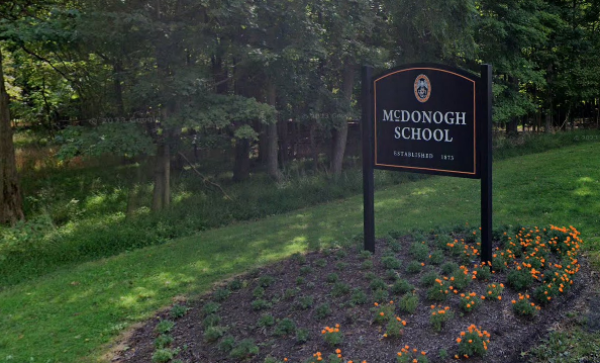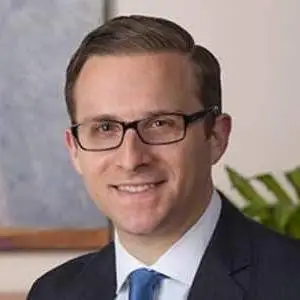
Shockwaves are reverberating through the McDonogh School community as the prestigious private boarding school discloses evidence of sexual assault by five former faculty members following an external investigation, according to AP News. The disturbing revelations indicate that over 20 students fell prey to these heinous acts over the span of several decades involving at least five former faculty members at McDonogh School located at 8600 McDonogh Rd, Owings Mills, MD 21117.
McDonogh School officials sent a letter to families on Tuesday, April 8, 2019, shedding light on the distressing findings. However, the school assures parents that the allegations do not involve any current faculty or students.
The investigation was initiated in 2016 after a former student from the 1980s bravely came forward, revealing that he had been sexually assaulted by two former faculty members, Alvin J. Levy and Robert E. Creed. Tragically, Levy, who had been indicted on a sexual abuse charge in 1992, passed away before his scheduled court appearance. Similarly, Creed had pleaded guilty in 1985 to sexual offenses and the abuse of a minor before his demise.
Following the disclosure, the McDonogh School promptly informed the authorities and engaged the services of an external investigation firm. The firm's thorough probe unveiled a distressing reality: Levy and Creed may have sexually assaulted 19 male students over a span of four decades. Additionally, the investigation revealed that three other former faculty members may have sexually assaulted five female students during the 1970s and 80s. While the letter refrained from disclosing the identities of these faculty members, it emphasized that law enforcement has been notified.
County State's Attorney Scott Shellenberger confirmed that the victims have been contacted. In a statement, he expressed that one courageous former female student was willing to testify in court. Unfortunately, Shellenberger lamented that the evidence required to build a case was not available due to the incident occurring in the 1980s, a time when state law mandated the encounter to be forced or the victim to be younger than she was.
Disturbingly, the investigation also unveiled that some of the allegations had been previously reported to school officials who failed to take appropriate action. Head of School, David Farace, expressed deep regret and issued an apology in the letter, acknowledging the school's failure to address the reported incidents adequately.
Law enforcement agencies and the school are urging anyone with additional information or who may have been a victim to come forward and contribute to the ongoing investigation. The hope is that justice will be served, and an environment of trust and security can be restored within the McDonogh School community.

After learning of the distressing revelations surrounding the boarding school in Maryland, where former faculty members are implicated in decades-long sexual assault, the pursuit of justice and accountability becomes paramount. To shed light on the legal options available to victims of boarding school sex abuse and their families, we sat down with Aaron Blank, Esq., a prominent sexual abuse lawyer based in Maryland. In this interview, Attorney Blank discusses the potential for civil lawsuits against boarding schools for sexual abuse and offers guidance to survivors on navigating the legal process, seeking compensation, and finding healing in the face of unimaginable trauma.
Darla Medina - Editor (DM): Thank you for joining us, Mr. Blank.
Aaron Blank, Esq. (AB): Thank you for having me, Darla. It's crucial to discuss the legal options available to school sex abuse victims and their families, especially in cases involving boarding schools.
DM: Absolutely, Mr. Blank. In situations like the revelations of sexual abuse at the Maryland boarding school, what can victims and their families do in terms of pursuing a civil case when sexually abused by a member of the school faculty?
AB: It is crucial for victims and their families to consult with an experienced sexual abuse attorney who specializes in handling these types of cases. The attorney can provide guidance on the legal process, explain their rights, and help determine the viability of a civil lawsuit. Victims should gather any available evidence, such as medical records, therapy records, or any documentation related to the abuse, as this evidence can strengthen their case.
DM: Are there any unique challenges or considerations in civil cases involving boarding schools?
AB: Yes, boarding school cases can present some unique challenges. One factor to consider is the potential involvement of multiple parties, such as the school administration or even other students. Additionally, statutes of limitations vary from state to state and can affect the timeline for filing a lawsuit. It's crucial to work with an attorney who is knowledgeable in this specific area of law.
DM: Are there any other factors victims should consider before deciding to pursue a civil case?
AB: Victims and their families should carefully evaluate the potential emotional toll and the impact that a legal proceeding may have on them. It's crucial to have a support system in place and seek counseling or therapy to help navigate the process. Consulting with a knowledgeable attorney is vital in understanding the potential outcomes, risks, and benefits of pursuing a civil case.
DM: How long do victims typically have to file a civil lawsuit based on statutes of limitations?
AB: The time victims have to file a civil lawsuit, known as the statute of limitations, can vary depending on the state and the nature of the claim. In the context of sexual abuse cases, statutes of limitations are typically designed to provide victims with a reasonable amount of time to come forward and seek legal recourse. It is crucial for victims to consult with a knowledgeable attorney who can provide accurate and up-to-date information on the specific statutes of limitations that apply to their case. Acting promptly is generally advisable, as delaying filing a lawsuit could potentially result in the claim being time-barred and unable to proceed in court.
DM: Thank you, Mr. Blank, for providing valuable insights on this important topic. Your knowledge will undoubtedly help victims and their families during this challenging time.
AB: It was my pleasure, Darla. My hope is that by raising awareness, we can empower survivors and their families to seek justice and begin the healing process.
 info@legalherald.com
info@legalherald.com